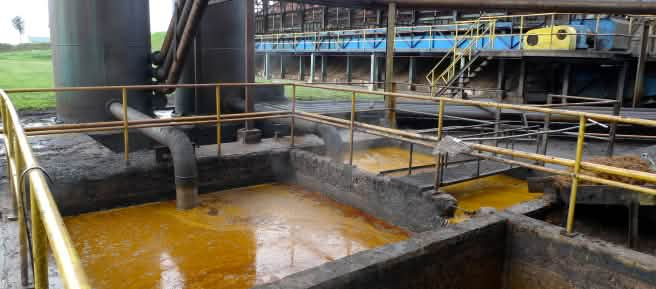
Completed campaign
Get carcinogenic refined palm oil out of our food!
Food safety experts are warning of palm oil’s health risks: the refined oil contains contaminants that can cause cancer and organ damage. Toddlers and children are especially vulnerable. Tell the EU to act on the findings and protect our health by banning palm oil.
News and updatesTo: the EU and relevant authorities
“Palm oil contains large quantities of genotoxic and carcinogenic substances. We demand a ban on toxic palm oil in our food.”For the past ten years, scientists have been warning of toxic substances in our food that are found in particularly high concentrations in palm oil. A recent study by the European Food Safety Authority commissioned by the EU has confirmed the threat.
Infants who are fed exclusively with industrial baby foods are particularly at risk: “The exposure ... of babies consuming solely infant formula is a particular concern as this is up to ten times what would be considered of low concern for public health,” explained Dr. Helle Knutsen in an EFSA bulletin published in May. The Norwegian toxicologist chairs EFSA’s panel on contaminants in the food chain (CONTAM).
Refined palm oil contains glycidol and other harmful fatty acid esters in very high concentrations. There is sufficient evidence that glycidol is genotoxic and carcinogenic, Knutsen noted.
The cheap tropical oil has found its way into half of the products in our supermarkets. Most people unwittingly consume palm oil several times a day: it can be found in chocolate spread, crunchy cereals, margarine, frozen dinners, sausages, pastries, ice cream, candy and countless other foods.
Toddlers and children who eat large quantities of processed foods containing palm oil are especially at risk.
The food industry relies heavily on palm oil as the cheapest available vegetable fat, but there are plenty of alternatives such as rapeseed, sunflower and olive oils.
Please call on the competent authorities and policymakers to ban palm oil and its contaminants from our food supply – for the sake of our health and that of the rainforests.
The European Food Safety Authority (EFSA) commissioned a study of the health risks of so-called process contaminants in vegetable oils and other food products. The analysis covered glycerol-based fatty acid esters: glycidyl fatty acid esters (GE), 3-monochloropropanediol (3-MCPD), and 2-monochloropropanediol (2-MCPD) and their fatty acid esters.
The substances are carcinogenic and damage DNA as well as organs such as the liver, kidneys and testes. They can be found in high concentrations in palm oil and products made with it. While small amounts can also be found in other vegetable oils, the concentration of carcinogenic glycidol in palm oil is 264 times higher than in olive oil, 24 times higher than in rapeseed oil and 15 times higher than in sunflower oil. The ratios are similar for 2-MCPD and 3-MCPD, as the graphs show.
Glycidol in vegetable oils
Mean Middle Bound (in μg/kg)
palm oil/palm fat 3955
sunflower oil: 269
rapeseed oil: 166
olive oil: 15
Palm oil contains more glycidol than other oils by a factor of:
olive oil: 264
rapeseed oil: 24
sunflower oil: 15
3-MCPD in vegetable oils
Mean Middle Bound (in μg/kg)
palm oil/palm fat 2912
sunflower oil: 521
rapeseed oil: 232
olive oil: 48
2-MCPD in vegetable oils
Mean Middle Bound (in μg/kg)
palm oil/palm fat 1565
sunflower oil: 218
rapeseed oil: 109
olive oil: 86
Source: EFSA Journal, May 3, 2016: Risks for human health related to the presence of 3- and 2-monochloropropanediol (MCPD), and their fatty acid esters, and glycidyl fatty acid esters in food – tables 11, 12 and 13
The substances form during food processing, in particular when refining vegetable oils at high temperatures (approx. 200°C). The extremely high concentrations of contaminants in palm oil are due to the specific chemical structure of the tropical oil. Palm oil is naturally high in diglycerides (4-12%), from which the contaminants are formed during processing.
Alfonso Lampen, food expert of the German Federal Institute for Risk Assessment (BfR), describes the substances as dangerous toxins, and that ingesting trace amounts can already cause serious physical harm.
Various scientific bodies have classified glycidol as mutagenic and carcinogenic. The fatty acid esters can break down into free 3-MCPD or free glycidol in the digestive tract. BfR studies have confirmed a near-complete conversion of 3-MCPD esters to free 3-MCPD, a substance that has been proven carcinogenic in animal experiments. The World Health Organization’s International Agency for Research on Cancer (IARC) classified free 3-MCPD as probably carcinogenic to humans as early as 2011.
The EU warns that for most people, palm oil is a significant factor in exposure to the contaminants. The content of 3-MCPD and its fatty acid esters in vegetable oils has hardly changed in the past five years.
High concentrations of the contaminants can be found in processed foods containing palm oil. Germany’s respected consumer advocacy TV program Wiso tested a number of chocolate-hazelnut spreads ranging from the market leader Nutella to spreads from discount supermarkets. The contaminants were found in all of the products. At 1.32 mg/kg, the values were especially high in an Aldi product, Nusskati.
The following sample calculation illustrates the problem: On average, children eat 20 grams of chocolate spread daily. This quantity of Nusskati would already amount to nearly 90% of the daily limit for a child weighing 15 kg.
Since roughly half of all supermarket products today contain palm oil, most consumers ingest it – and the contaminants it contains – several times a day. Few consumers are aware of this, as the food industry avoids widespread publicity for its use of the controversial oil.
There are alternatives, however, as shown by COOP, Italy’s largest supermarket chain. By its own account, COOP has replaced palm oil with olive oil and other vegetable oils in 100 products of its store brand. The company is accelerating the conversion of the remaining 140 products that still contain palm oil in the coming months in response to the EFSA warning.
EFSA
The European Food Safety Authority (EFSA) is the food industry watchdog of the European Union.
CONTAM (Panel on Contaminants in the Food Chain) is a committee of scientists that advises EFSA on the impact of contaminants.
Sources:
- EFSA bulletin published on May 3, 2016: Process contaminants in vegetable oils and foods: http://www.efsa.europa.eu/en/press/news/160503a
- EFSA study commissioned by the European Commission, published on May 3, 2016: Risks for human health related to the presence of 3- and 2-monochloropropanediol (MCPD), and their fatty acid esters, and glycidyl fatty acid esters in food
To: the EU and relevant authorities
Ladies and Gentlemen,
The EU has sounded the alarm because of contaminants in our food associated with palm oil. On May 3, the European Food Safety Authority (EFSA) published a study on health risks associated with fatty acid esters in foods. In the study and accompanying bulletin, EFSA warns of food products containing palm oil. These often have high concentrations of carcinogenic and genotoxic contaminants that are also known to damage the liver, kidneys and testes.
Toddlers and children who eat large quantities of processed foods containing palm oil are especially vulnerable, as they ingest the toxins with every bite.
In the interest of our health, please ban palm oil and its associated contaminants from our foods without delay. Non-tropical vegetable oils such as sunflower, rapeseed and olive are viable alternatives.
Sincerely,
The issue – rainforest on our dinner tables and in our fuel tanks
At 66 million tons annually, palm oil is the most commonly produced vegetable oil. Its low world market price and properties that lend themselves to processed foods have led the food industry to use it in half of all supermarket products. Palm oil can be found in frozen pizzas, biscuits and margarine, as well as body creams, soaps, makeup, candles and detergents.
Few people realize that almost half of the palm oil imported into the EU is used as biofuel. Since 2009, the mandatory blending of biofuels into motor vehicle fuels has been a major cause of deforestation.
Oil palm plantations currently cover more than 27 million hectares of the Earth’s surface. Forests and human settlements have been destroyed and replaced by “green deserts” containing virtually no biodiversity on an area the size of New Zealand.
The impact – suffering and death in producer countries, climate havoc
The warm, humid climate of the tropics offers perfect growth conditions for oil palms. Day after day, huge tracts of rainforest in Southeast Asia, Latin America and Africa are being bulldozed or torched to make room for more plantations, releasing vast amounts of carbon into the atmosphere. As a consequence, Indonesia – the world’s largest producer of palm oil – temporarily surpassed the United States in terms of greenhouse gas emissions in 2015. With their CO2 and methane emissions, palm oil-based biofuels actually have three times the climate impact of traditional fossil fuels.
Palm oil is not only bad for the climate: As their forest habitat is cleared, endangered species such as the orangutan, Borneo elephant and Sumatran tiger are being pushed closer to extinction. Smallholders and indigenous people who have inhabited and protected the forest for generations are often brutally driven from their land. In Indonesia, more than 700 land conflicts are related to the palm oil industry. Human rights violations are everyday occurrences, even on supposedly “sustainable” and “organic” plantations.
As consumers, we are largely unaware of these broader issues, yet our daily palm oil consumption also impacts our health: refined palm oil contains large amounts of harmful fatty acid esters that are known to damage DNA and cause cancer.
The solution – a revolution on our dinner tables and in our fuel tanks
Only 70,000 orangutans still roam the forests of Southeast Asia, yet the EU’s biofuels policy is pushing them to the brink of extinction. Every new plantation on Borneo is destroying a further piece of their habitat. Stepping up the pressure on policymakers is a must if we want to save our tree-dwelling kin. Apart from that, however, there is still a lot we can do in day-to-day life.
Follow these simple tips to recognize, avoid and combat palm oil:
- Enjoy a home-cooked meal: Use your imagination: why not try almond-coconut-pear biscuits? Or pizza with potato and rosemary? A meal cooked from fresh ingredients beats processed foods containing palm oil every time. Oils such as sunflower, olive, rapeseed or flaxseed are ideal for cooking and baking.
- Read labels: As of December 2014, labeling regulations in the EU require food products to clearly indicate that they contain palm oil. However, in the case of non-food items such as cosmetics and cleaning products, a wide range of chemical names may still be used to hide the use of palm oil. A quick check of your favorite search engine will turn up palm oil-free alternatives, however.
- Remember that the customer is king: Ask your retailers for palm oil-free products. Write product manufacturers and ask them why they aren’t using domestic oils. Companies can be quite sensitive to issues that give their products a bad name, so inquiring with sales staff and contacting manufacturers can make a real difference. Public pressure and increased awareness of the problem have already prompted some producers to stop using palm oil.
- Sign petitions and write your elected representatives: Online campaigns put pressure on policymakers responsible for biofuels and palm oil imports. Have you already signed all of Rainforest Rescue’s petitions?
- Speak out: Protest marches and creative action on the street raise public and media awareness of the issue, which in turn steps up the pressure on policymakers.
- Leave your car at home: Whenever you can, walk, ride a bicycle or use public transport.
- Be informed and inform others: Big Business and governments would like us to believe that biofuels are good for the climate and that oil palm plantations are sustainable. Spread the word – share this information with your family and friends and encourage them to rethink their consumption habits. It’s in our hands!


